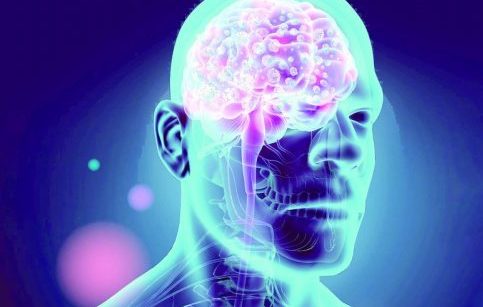Little known mental disease that affects men more

Two months prior to his visitation to the hospital, James Kimanzi, 28, had developed what many termed as weird character. As his younger sister Mary Kimanzi* narrates, James had a history of isolating himself, reduced personal hygiene, poor appetite, inability to maintain a job and occasionally talking to himself.
Mary says her brother had no history of using any addictive substances such as drugs.
The family was more worried since there was no known history of mental illness in the nuclear family even in the extended one.
“We grew up in a home where both our parents were present in our lives and James went to school up to secondary school. He later joined a vocational training college and trained in plumbing. After studies, he got a job and worked for six months, after which he started absconding duty,”she says.
The absenteeism from work did not go down well with his bosses and he was in a matter of time laid off.
Feeling awful seeing her brother jobless and hopeless, Mary and other siblings got James another job where he worked for four months before troubles started again.
First signs
He would complain of the workplace environment not being conducive to work in and after days of complaining, James quit his job.
Things took a U-turn when James started showing signs of depression and being confused. He further started exhibiting peculiar behaviour such as refusing to take a shower for days and avoiding people.
It is at this point that the family decided to take him to hospital for medical check-up.
A doctor who treated James says when the patient got to the hospital, he could not tell the day, date, or time of day. He, however, says the patient’s cognition was found to be intact as he could recognise his siblings and even tell that he was in a hospital.
“The cognition abilities of the patient were ascertained after he positively answered some of the questions such as what was the differences between a table and a chair, which he confidently answered,” says the doctor who initially treated him.
One thing that stood out for the doctor was James’ ability to deny any mental issues as he believed he was of sane mind.
He recomended further mental check-ups where specialists discovered that he was suffering from schizophrenia, a mental disorder that is characterised by hallucinations, delusions, and extremely disordered thinking and behaviour that impairs daily functioning, and can be disabling among other symptoms.
James was admitted and after being on medication for two weeks, psychotherapy was initiated.
“Immediately after starting psychotherapy, which he is still on, we started noticing some positive improvements. Therapy has helped manage the condition and help him live a normal life. He currently works as a plumber in Mlolongo where we live,”says Mary
According to Doctor Irene Njeri Njogu, a medical doctor and a founder of Tunza Afya Africa, a mental awareness health organisation, schizophrenia is more prevalent among males than females with a ratio of 2:1.
She says for men, it occurs between the age of 15 to 25 years, whereas in females, it occurs between 25 to 35 years. Also,about 10 per cent of patients commit suicide and 50 per cent have a history of attempted suicide.
The mental health crusader says studies are ongoing to determine genetics as a trigger for schizophrenia.
“Complement c4 gene has been noted to be elevated in patients with First Episode Psychosis (FEP). There is also a 50 to 77 percent heritability estimate from twin studies. However, this does not mean that if a person expresses this gene they will automatically develop schizophrenia,” she explains.
Genetic connections
Just like any other illness, Njeri says that schizophrenia is managed at most facilities in the country, which have a psychiatric unit.
“In actual sense, any facility that has a medical officer is capable of managing schizophrenia, since all doctors undergo psychiatric training in medical school. The challenges, however come in when we look at medication, psychiatry-trained nurses, psychologists and restraining equipment in the hospital that helps in preventing patients from self-harm or hurting other patients and even practitioners,” she says.
Njeri says facilities in Kenya are not well equipped to handle mental health challenges and the only way to address this issue is by allocating more funds towards this field of medicine. She shares how Schizophrenia is a debilitating disease, and the outcome is worse when interventions are delayed.
Catherine Karega, a medical psychologist and founder of Fine Mind Psychology says that symptoms of schizophrenia differ from person to person, but they generally fall into three main categories: psychotic, cognitive and negative. “Psychotic symptoms include changes in the way a person thinks, acts and experiences the world. People with psychotic symptoms may lose a sense of reality with others and may experience the world in a distorted way. Their experiences may be clouded by hallucinations, delusions, disordered thinking and movement disorder,”she says.
Depression vs schizophrenia
“Cognitive symptoms are problems in attention, concentration and memory. These symptoms can make it hard to follow a conversation, learn new things or remember appointments. Negative symptoms include a loss of motivation, loss of interest or enjoyment in daily activities, withdrawal from social life, difficulty showing emotions and difficulty functioning normally. These negative symptoms can mimic those of depressive disorders, so it is important to get a differential diagnosis from a qualified psychologist who can take a history and provide a clearer diagnosis,” she says.
At a certain stage, schizophrenia might lead to psychosis, a collection of symptoms that affect the mind, where there has been some loss of contact with reality. Karega says that psychosis is strongly connected to schizophrenia.
Risk factors
Karega says schizophrenia happens in stages with the onset stage being an early phase that happens before a person develops severe symptoms. In the active stage the psychotic symptoms take full effect where a person shows a disconnection from reality. The final stage is the residual stage where schizophrenia signs and symptoms are not as severe.
Karega discloses that there is not much that can be done to prevent psychosis, but through therapy, individuals can learn to identify instances when what they are experiencing is disconnected from reality. However, she notes that psychotherapy methods such as cognitive behavioural therapy can help individuals learn how to cope with and manage their condition.
Karega notes that there is no specific cause for schizophrenia, but a complex interplay of genetic and environmental risk factors are considered to be the cause.
“Research has demonstrated that a family history of schizophrenia increases your risk of developing the condition. However, just because one family member has schizophrenia, it does not mean that other members of the family will also have it. Genetic factors combined with aspects of a person’s environment and life experiences may play a role in the development of schizophrenia,”she says. Risk factors such as pregnancy and birth complications, childhood trauma, migration, social isolation, and substance abuse, alone and in combination, and acting at different levels over time, can also influence your likelihood to develop the disorder.
“Finally, some studies have shown that people with schizophrenia may be more likely to have differences in size in certain brain areas and in connection between brain areas. It is recognised that some of these brain differences may develop before birth. Ongoing research is geared towards understanding how brain structure and function may relate to schizophrenia,” she divulges.
Karega gives tips on managing schizophrenia patients pointing out the first step is for the caregivers to be more aware of the signs and symptoms of schizophrenia. “This applies to all mental disorders. Awareness allows us to understand and empathise with what someone is going through,”she says in ending.















